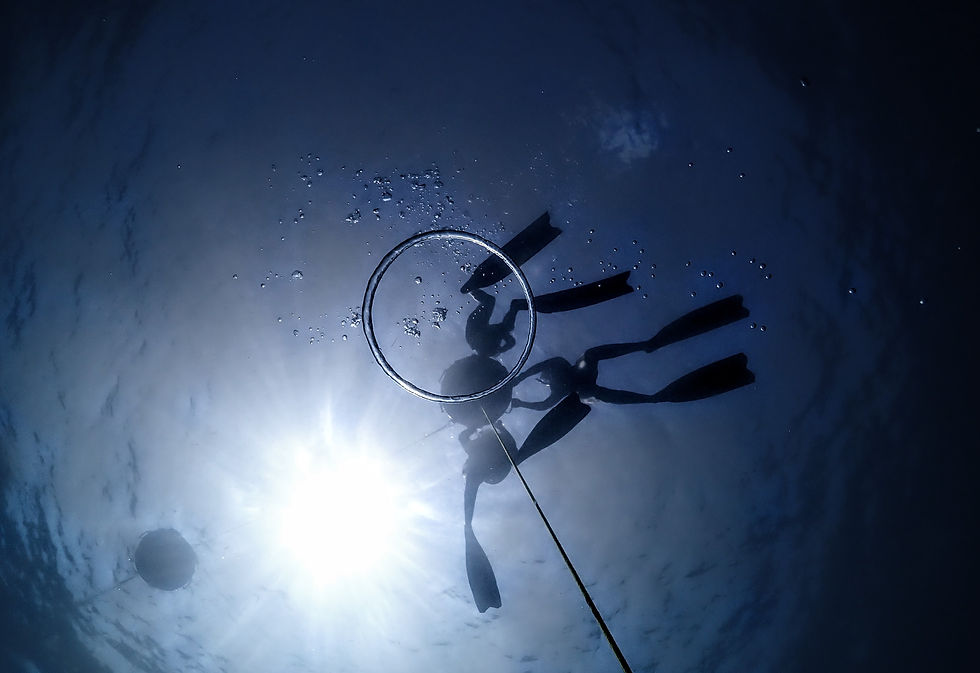What Happens to Your Body During a Freedive?
- ניר כהן
- Jul 25, 2025
- 2 min read

Freediving isn’t just about holding your breath it’s about unlocking powerful, natural responses that lie deep within the human body. Whether you're diving to 5 meters or 30, your body is doing amazing things to protect you, adapt, and go deeper.
Let’s dive into what actually happens inside you when you hold your breath underwater.
1. The Mammalian Dive Reflex
This is your built in survival system. When your face touches cold water and you hold your breath, the mammalian dive reflex kicks in just like it does in whales and dolphins.
Here’s what it does:
Slows your heart rate (bradycardia)
Constricts blood vessels to keep blood in the brain and heart
Preserves oxygen by reducing muscle activity
This reflex is strongest when you're relaxed—and you can train it!

2. The CO₂ Buildup & Mental Game
As you hold your breath, carbon dioxide (CO₂) builds up in your body not lack of oxygen. That “urge to breathe” you feel? It’s caused by CO₂ rising, not because you're out of air.
Learning to understand and stay calm during this stage is a key skill in freediving. We teach breathing techniques and mental strategies to manage this response with confidence and awareness.

3. Oxygen Conservation Mode
Your body gets smarter as you go deeper. During a dive, your body reduces oxygen use by:
Slowing the heart
Limiting blood flow to arms and legs
Shifting blood into your lungs to protect against pressure (blood shift)
You’re basically turning into an aquatic version of yourself a calmer, deeper human.

4. How We Train This at Freediving Sri Lanka
Our courses teach you how to safely push limits, understand body signals, and train smart not hard.
Whether in static breath-hold, pool practice, or deep dives in the sea, we guide you every step of the way.
You’ll leave not only diving deeper
but knowing yourself better.








Comments